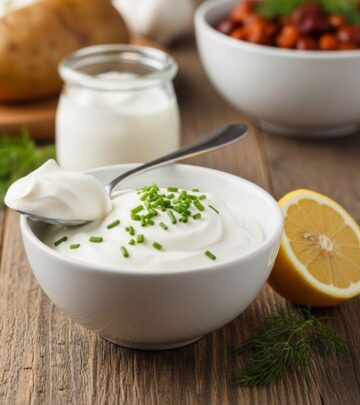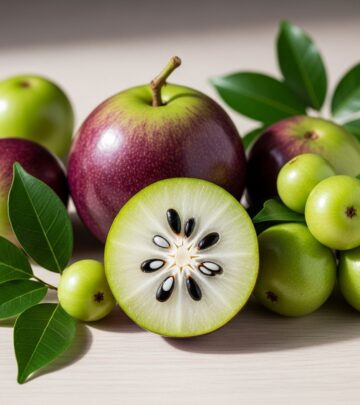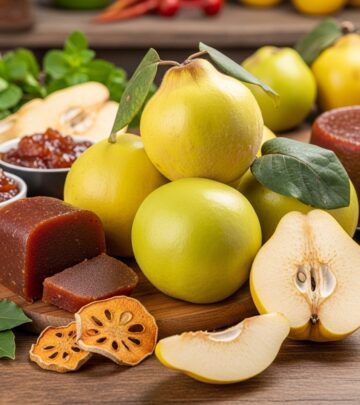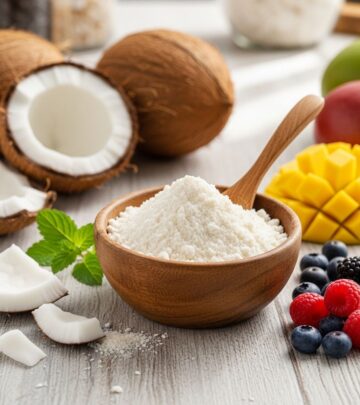12 Proven Health Benefits Of Pickles: Nutrition, Types, and FAQs
Brined vegetables bring live cultures and essential nutrients to enrich your daily diet.
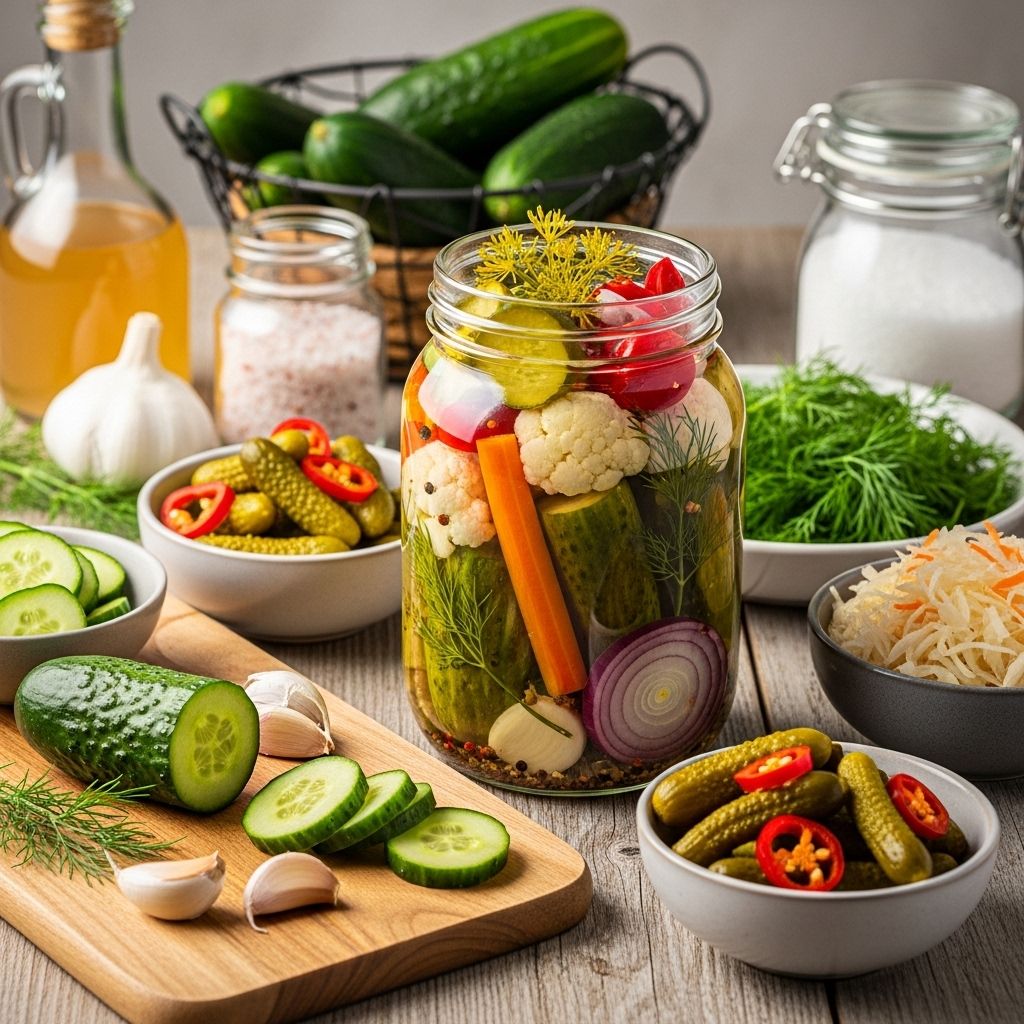
12 Proven Health Benefits Of Pickles: Nutrition, Types, Uses, and FAQs
Pickles have long stood out as tangy, crunchy accompaniments to meals across the globe. Whether you relish a classic dill spear, spicy kimchi, or a sweet mango pickle, these fermented or brined delights offer more than just flavor—they can also deliver meaningful health benefits. But how healthy are pickles? This comprehensive guide explores the nutritional value, health advantages, types of pickles, risks, and common questions about these popular preserved foods.
What Are Pickles?
Pickles are fruits or vegetables preserved in a solution of salt, vinegar, or brine. Through processes like fermentation or vinegar curing, their shelf life is extended while their flavors are dramatically intensified. Pickling is a centuries-old method for preserving seasonal produce and infusing foods with a distinct sour or spicy taste.
While fermented pickles are made by submerging produce in salty water to promote the growth of healthy bacteria, quick pickles are typically preserved by soaking in vinegar. Both styles have unique nutritional profiles and benefits.
Nutrition Profile Of Pickles
| Nutrient | Amount per 100g (average) |
|---|---|
| Calories | 11-20 kcal |
| Carbohydrates | 2-5 g |
| Protein | 0.3-1 g |
| Fat | 0.1 g |
| Sodium | 500-1200 mg |
| Vitamin K | 15-60% DV |
| Vitamin A | Up to 6% DV |
| Potassium | 18-100 mg |
| Calcium | 14-60 mg |
| Vitamin C | 2-5 mg |
| Dietary Fiber | 0.5-2 g |
DV = Daily Value. Nutrition values can vary based on the type of pickle, base vegetable, added ingredients, and specific preparation method.
Types Of Pickles
- Cucumber pickles: The most popular, commonly prepared as dill, bread-and-butter, or gherkins.
- Fermented vegetables: Includes sauerkraut (cabbage), kimchi (spicy cabbage), pickled carrots, turnips, radish, and more.
- Fruit pickles: Mango pickles, lemon pickles, and other regional fruit varieties.
- Brined vs. Vinegar pickles: Brined pickles are fermented and rich in probiotics; vinegar pickles are quickly preserved but lack live cultures unless specially inoculated.
12 Heath Benefits Of Pickles
1. Improve Gut Health
Fermented pickles are an excellent source of live probiotics, which foster a healthy gut microbiome. These beneficial bacteria aid digestion, support nutrient absorption, and help keep harmful microbes at bay.
Key point: Only naturally fermented, unpasteurized pickles contain live probiotics. Vinegar-based and shelf-stable pickles generally do not unless probiotics are added after processing.
Sources:2. Enhance Digestion
Probiotics in fermented pickles help break down food in the gut, promote regular bowel movements, and restore balance after antibiotic use.
The fiber content of pickled vegetables further aids digestive health.
Sources:3. Rich in Antioxidants
Pickles, especially those made from colorful fruits or vegetables, contain a variety of antioxidants, including polyphenols, carotenoids, anthocyanins, and vitamin C. These substances help combat oxidative stress and may lower the risk of chronic diseases.
The fermentation or brining process can help preserve or even increase certain natural antioxidants.
Sources:4. Support Immune Function
Fermented pickles provide lactic acid bacteria (LAB), which have been shown to strengthen the immune response and may help prevent infections and some chronic conditions.
Plant-based antioxidants in pickles (flavonoids, vitamin C) also play a role in supporting immunity.
Sources:5. May Help Control Blood Sugar
Research suggests vinegar-based pickles can help decrease the spike in blood sugar following meals, offering potential benefits to those managing diabetes.
Acetic acid in vinegar slows carbohydrate digestion and can modestly improve insulin sensitivity.
Sources:6. Electrolyte Balance and Muscle Cramps
Pickles—and their juice—are high in sodium and may help relieve exercise-induced muscle cramps by rapidly restoring lost electrolytes, especially after heavy sweating.
Athletes sometimes use pickle juice to prevent cramps and speed up hydration.
Sources:7. Source of Essential Nutrients
Pickles supply vitamins and minerals such as potassium, calcium, vitamin A, vitamin K, and vitamin C.
These nutrients contribute to bone health, heart health, vision, blood clotting, and immune support.
Sources:8. Promote Weight Management
Low in calories but rich in flavor, pickles can help curb cravings and increase satiety. Fermented pickles contain fiber, aiding fullness and digestion. Some evidence hints that a healthy gut microbiome may contribute to weight regulation.
Sources:9. May Help Lower Cholesterol
Some studies indicate that fermented pickles (especially those made with lactic acid bacteria) may help reduce serum cholesterol levels.
Sources:10. Preserve Bioactive Plant Compounds
The pickling process helps retain or even enhance the levels of natural phytochemicals and pigments, including anthocyanins, carotenoids, and flavonoids, believed to support overall wellness.
Sources:11. Antimicrobial Properties
Lactic acid bacteria found in fermented pickles can produce compounds that inhibit foodborne pathogens such as E. coli and Salmonella, potentially contributing to safer food and improved gut health.
Sources:12. Versatility and Preservation
Pickling not only extends the shelf life of fresh produce, preventing waste, but also allows for the enjoyment of flavor and nutrition from many fruits and vegetables year-round.
Sources:
Are All Pickles Healthy?
Not all pickles confer the same benefits. Fermented pickles are the clear standout for gut health and probiotics. Vinegar-pickled, pasteurized, or shelf-stable pickles usually lack live cultures, though they may still offer vitamins, fiber, and antioxidants. Also, pickles high in sugar or sodium should be enjoyed in moderation to avoid excess salt or empty calories.
Potential Risks and Side Effects of Pickles
- High Sodium Content: Most commercial pickles are very high in salt (500–1200 mg/100g), which can contribute to increased blood pressure or exacerbate heart and kidney conditions if over-consumed.
- Acidity: The acetic acid in vinegar can erode tooth enamel and may aggravate acid reflux in sensitive individuals.
- Sugar Content: Sweet pickles often contain high amounts of sugar, which can impact blood sugar management and oral health.
- Allergic Reactions: Rarely, additives or spices in pickles can cause allergies or sensitivities.
- Digestive Upset: Overeating pickles, particularly spicy or very sour varieties, may cause bloating, gas, or stomach discomfort.
How To Choose Healthy Pickles
- Look for naturally fermented pickles, often found in the refrigerated section and labeled as containing ‘live and active cultures’ or ‘unpasteurized.’
- If sodium is a concern, select low-sodium options or make pickles at home with less salt.
- Choose pickles without added sugars or artificial preservatives for optimal health benefits.
- Try pairing pickles with balanced meals rather than eating large amounts at once.
Simple Ways To Add Pickles To Your Diet
- Add sliced pickles to sandwiches, wraps, or toppings for grilled meats.
- Incorporate kimchi or sauerkraut into grain bowls, salads, or stir-fries.
- Use chopped pickles in tuna salad, egg salad, or potato salad for a tangy twist.
- Try spicy or sour pickles as a condiment on burgers or pizza.
- Enjoy pickled fruit with cheese or as part of an antipasto platter.
Frequently Asked Questions (FAQs) About Pickles
Q: What is the main difference between fermented and vinegar pickles?
A: Fermented pickles are brined in saltwater and develop beneficial bacteria (probiotics) through natural fermentation. Vinegar pickles are quickly cured with an acidic solution, often do not contain live cultures, but preserve flavor and nutrients.
Q: Are pickles good for gut health?
A: Yes, but only fermented pickles with live probiotics support gut health. Shelf-stable or vinegar pickles lack these benefits unless labeled as containing live cultures.
Q: Can people with high blood pressure eat pickles?
A: Pickles are high in sodium. People with hypertension or on sodium-restricted diets should limit their intake or select low-sodium varieties.
Q: What nutrients are most abundant in pickles?
Vitamin K, vitamin C, potassium, calcium, and fiber are common, along with beneficial plant compounds like flavonoids and anthocyanins depending on the base vegetable or fruit.
Q: Do pickles help with muscle cramps?
A: Some athletes report relief of muscle cramps with pickle juice, likely due to the quick replenishment of sodium and fluids lost through sweat.
Q: Are there any types of pickles to avoid?
A: Avoid pickles high in added sugar, preservatives, artificial colors, or excessive sodium. Homemade pickles allow for better control over healthy ingredients.
Conclusion: Should You Eat Pickles?
Pickles—especially fermented varieties—can be enjoyed as a flavorful way to enhance your gut health, boost antioxidant intake, and provide valuable vitamins and minerals. However, moderation is key due to their high sodium content. Always check labels for live cultures, low salt, and minimal added sugars to maximize health benefits while savoring the diverse world of pickled foods.
References
- https://longevity.stanford.edu/lifestyle/2023/10/05/in-a-pickle-unveiling-gut-friendly-pickles-for-your-health/
- https://pmc.ncbi.nlm.nih.gov/articles/PMC5897286/
- https://foodrevolution.org/blog/are-pickles-healthy/
- https://www.brookdale.com/en/brookdale-life/blogs/2025/05/health-benefits-of-pickles-il.html
- https://tellus.ars.usda.gov/stories/articles/pickle-benefits-fermented-cucumbers
- https://newsroom.clevelandclinic.org/2024/05/15/surprising-health-benefits-of-pickles
- https://pmc.ncbi.nlm.nih.gov/articles/PMC10777956/
- https://www.osfhealthcare.org/blog/are-pickles-good-for-you
Read full bio of medha deb


